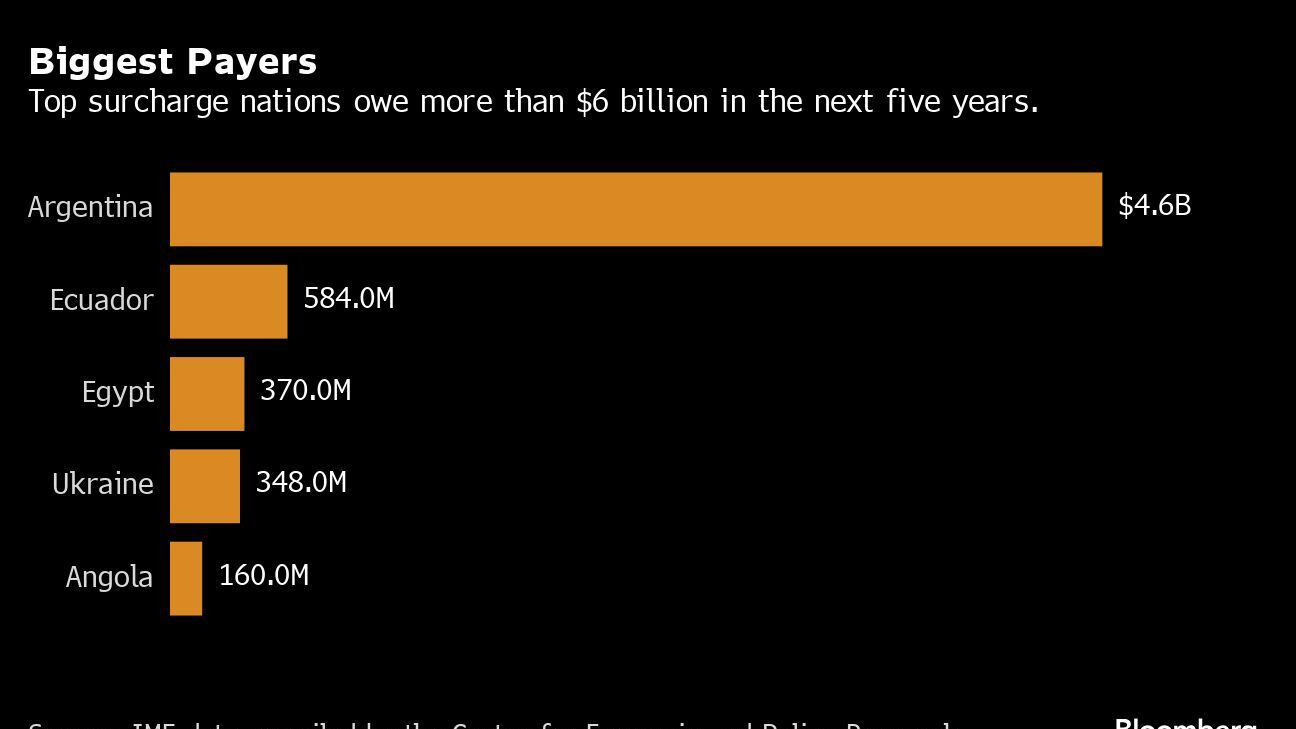(Bloomberg) -- The International Monetary Fund is focusing on a set of options to ease the additional debt burden it imposes on nations looking to escape financial distress, as it seeks to address complaints that its current system is overly punitive.
The IMF’s executive board had a meeting this week to consider three potential changes to the so-called surcharges system, according to people familiar with the plan who asked not to be identified discussing private information. The changes could be implemented jointly or separately, the people said, and no final decisions have been made.
The surcharge fees apply to nations that use more than their allotted share of IMF resources or take longer to repay loans under fund programs.
The first relief option would be to raise the threshold for which surcharges are imposed on borrowers. The second would cut the size of surcharges, and the third would lower the rate the fund charges on lending, the people said.
The IMF declined to comment, reiterating earlier statements that the issue is under consideration.
The US, the IMF’s biggest shareholder, has signaled a willingness to consider relief. The fund said in April that “a number” of directors were open to reviewing the policy, with any change requiring 70% of votes. The discussions on reducing fees come before the IMF and World Bank annual meetings the week of Oct. 21.
The surcharges have become a top target by progressives, from Democrats in the US Congress to Brazil’s President Luiz Inacio Lula da Silva, this year’s host of the Group of 20. They argue that the interest rate, which has soared in recent years and is now above 8% on some loans, creates a heavy burden for countries that are turning to the fund precisely because they’re suffering financial distress.
The fund charges a rate of 200 basis points, or 2 percentage points, on loans above 187.5% of a country’s “quota” of IMF financing. That rises to 300 basis points if the loan remains above that threshold after three years, according to the IMF’s website. One proposal under consideration is to raise that threshold for higher rates to 300% of quota, one of the people said.
Another idea is to lower to 75 basis points from 100 basis points the rate applied on loans from the IMF’s general resources account for debts that have been above the threshold for more than 3 years, or 51 months for loans via the IMF’s Extended Fund Facility, the person said. A third option is lowering the IMF’s basic rate of about 500 basis points, another person said.
©2024 Bloomberg L.P.
